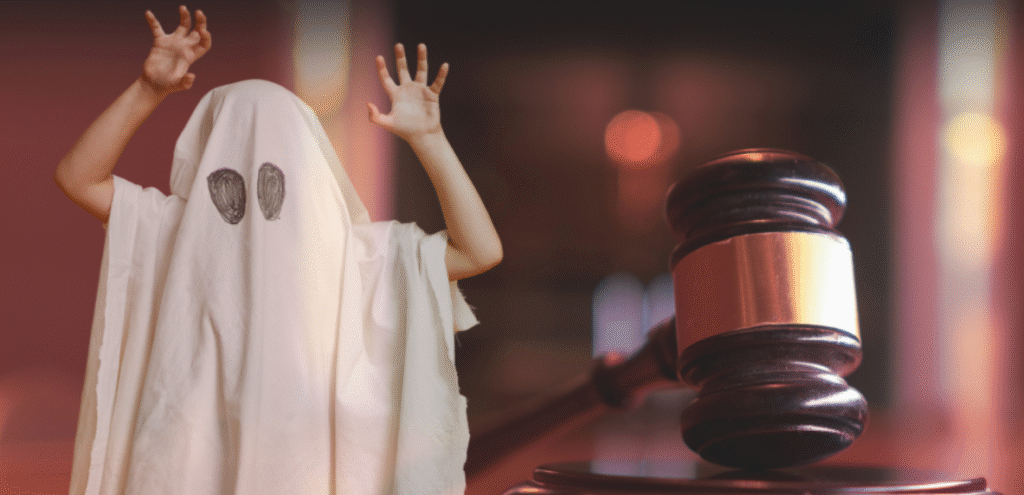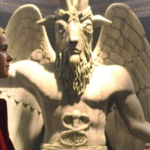The sole aim of every court litigation is to bring justice and relief to the parties involved. Just picture this scenario, you wake up to discover that your property has been destroyed. You exhaust all rational options just to come to the conclusion that the alleged culprit is not human but a ghost.
Table of Contents
While this might sound amusing it raises a profound legal question can a ghost be subpoenaed if it caused property damage?
This article will examine whether a ghost can be subpoenaed or sued and how courts have addressed cases involving alleged supernatural entities.
The legal foundation of a subpoena
For educational purposes, what is a subpoena?
A Subpoena is a legal order that requires a person to appear before a court to testify or produce evidence. Subpoenas are used in both civil and criminal cases.
For a subpoena to be valid, it must be issued to a legal entity that lives within the jurisdiction of the court. The recipient of the subpoena on the other hand, must be able to understand the order, respond to it and face legal consequences for failing to comply with the order.
Based on the definition, only an individual or organization with legal standing can be subpoenaed.
Can a ghost be subpoenaed?
A ghost cannot be subpoenaed because a subpoena is issued to a living person or an entity.
A ghost is the spirit or soul of a dead person or non- human that is believed to be able to appear to the living in the form of a shadow. This means a ghost cannot be forced by a court order to testify or produce evidence.
There have been cases where the court has admitted the testimony of a ghost as evidence.
One notable case is the Greenbrier Ghost case in West Virginia in 1897. During the trial of Edward Trout Shue, the victim’s mother Zona Heaster Shue claimed her daughter’s ghost revealed the identity of her murderer. The court admitted the testimony as evidence given by a living person but not as direct testimony from the ghost. In this case, the ghost was never subpoenaed.

Can a ghost be held liable?
In law, only legal entities like human beings or an organization with a legal standing can be held liable for damages. This raises the fundamental legal question, can a ghost be held liable for damages?
Based on the definition of a ghost, a ghost lacks a physical body and legal personhood to be considered a legal entity under the law. Therefore, a ghost cannot be held legally responsible for an action.
This position has been affirmed in numerous cases; one classical example of such a case is Stambovsky v. Ackley (1991). In the case of Stambovsky v. Ackley (1991), the seller, Helen Ackley had publicly claimed her house was haunted but Helen sold the property without disclosing it to the buyer. The Stambovsky sued Ackley to rescind the contract.
The New York Appellate Division ruled that the house was haunted due to Ackley’s public statement about the house. However, the court did not affirm the existence of the ghost but acknowledged that the value of the property has been affected because of its reputation of being a haunted house. The court allowed Stambovsky to rescind the contract, stating: “As a matter of law, the house is haunted.”
This case shows the court set aside the existence of a ghost by not subpoenaing the ghost but rather holding the seller accountable for misrepresentation or failure to disclose that the house is haunted.
Can Ghosts Be Prosecuted?
Prosecuting a ghost may happen only in fiction movies or folklore stories. According to the law, prosecution requires a tangible defendant with legal personhood. Ghosts are supernatural entities and lack the legal capacity to be held liable for their actions.
The United States Supreme Court has repeatedly ruled that only a defendant with legal responsibility can be sued, arrested, and stand for trial. In short, a ghost cannot be prosecuted because it lacks personhood.
Global legal perspective of subpoenaing a Ghost
Since the law deals with living persons and organizations, most countries do not have explicit laws on how to subpoena a supernatural entity like ghosts and spirits. Here is how some countries and their laws deal with subpoenaing a Ghost:
The United States: Only living persons and organizations with legal standing can be subpoenaed. Ghosts are not tangible defendants, therefore cannot be subpoenaed. The US has encountered cases involving ghosts, as in the case of Stambovsky v. Ackley (1991) and the Greenbrier Ghost Case (1897).
The United Kingdom: In the UK, a subpoena is referred to as a witness summons. The UK law is grounded in common law and recognizes only living persons and legal entities as parties to a court case. Therefore, Ghost cannot be issued a witness summons.
Japan, India, and China: Their laws only deal with the subpoena of living persons and legal entities but not super naturals like ghosts.
Conclusion
For centuries alleged actions of ghosts have influenced the legal decisions of courts in contract and estate laws but the law is explicitly clear: a ghost cannot be subpoenaed if it caused property damage.
Only living persons or organizations with legal standing are entitled to legal remedies under law. In most cases that involve supernational, the law deals with the legal entities involved and holds them responsible for the legal injuries.
As the famous saying goes, the court is not the place to seek spiritual redress. So if you are experiencing unexplained damage to your properties and you suspect the involvement of a supernatural force then seek professional help.
FAQs
Can a ghost be subpoenaed for property damage?
No, A ghost cannot be subpoenaed for property damage.
Can a ghost be sued for liabilities?
No, a ghost cannot be sued for liabilities. The only requirement under law to hold someone liable for liabilities are
- An identifiable party (defendant)
- Proof of causation (the defendant caused the damage)
- Actual damages (quantifiable loss)
- The ability to enforce a judgment
Can a ghost be served with court papers?
No, a ghost cannot be served with court papers as it lacks personal identity and a permanent address.
Does the court deal with spiritual matters?
No, because they cannot be proven physically.

















